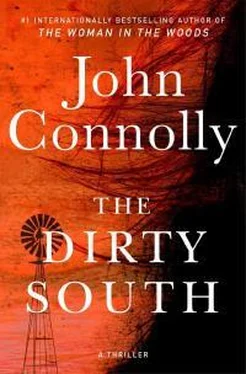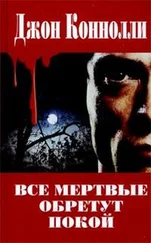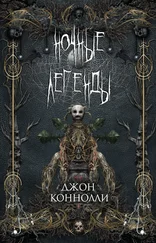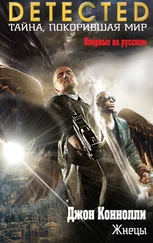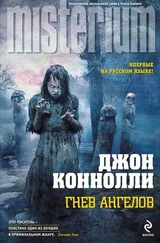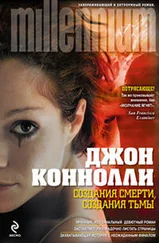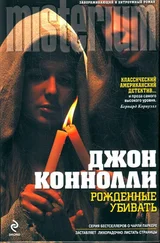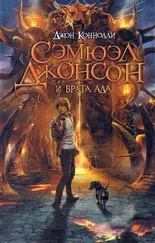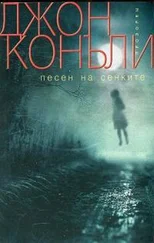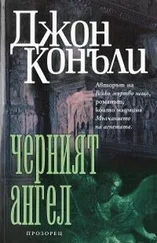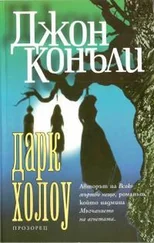Contents
About the Author
Also by John Connolly
Title Page
Copyright
Dedication
How to Use this eBook
Part I
Now
Chapter 1
Then
Chapter 2
Chapter 3
Chapter 4
Chapter 5
Chapter 6
Chapter 7
Chapter 8
Chapter 9
Chapter 10
Chapter 11
Chapter 12
Chapter 13
Chapter 14
Chapter 15
Chapter 16
Chapter 17
Chapter 18
Chapter 19
Chapter 20
Chapter 21
Chapter 22
Chapter 23
Chapter 24
Chapter 25
Chapter 26
Chapter 27
Chapter 28
Part II
Chapter 29
Chapter 30
Chapter 31
Chapter 32
Chapter 33
Chapter 34
Chapter 35
Chapter 36
Chapter 37
Chapter 38
Chapter 39
Chapter 40
Chapter 41
Chapter 42
Chapter 43
Chapter 44
Chapter 45
Chapter 46
Chapter 47
Chapter 48
Chapter 49
Chapter 50
Chapter 51
Chapter 52
Chapter 53
Chapter 54
Chapter 55
Part III
Chapter 56
Chapter 57
Chapter 58
Chapter 59
Chapter 60
Chapter 61
Chapter 62
Chapter 63
Chapter 64
Chapter 65
Chapter 66
Chapter 67
Chapter 68
Chapter 69
Chapter 70
Chapter 71
Part IV
Chapter 72
Chapter 73
Chapter 74
Chapter 75
Chapter 76
Chapter 77
Chapter 78
Chapter 79
Chapter 80
Chapter 81
Chapter 82
Chapter 83
Chapter 84
Chapter 85
Chapter 86
Chapter 87
Chapter 88
Chapter 89
Part V
Chapter 90
Chapter 91
Chapter 92
Chapter 93
Chapter 94
Chapter 95
Chapter 96
Chapter 97
Chapter 98
Chapter 99
Chapter 100
Now
Chapter 101
Acknowledgments
About the Author
John Connolly was born in Dublin in 1968. His debut EVERY DEAD THING swiftly launched him right into the front rank of thriller writers, and all his subsequent Charlie Parker novels have been Sunday Times bestsellers. BOOKS TO DIE FOR, which he edited with Declan Burke, was the winner of the 2013 Anthony, Agatha, and Macavity Awards for Best Non-fiction. He was the first non-American writer to win the US Shamus award, and the first Irish writer to be awarded the Edgar by the Mystery Writers of America.
www.johnconnollybooks.com
Also by John Connolly
The Charlie Parker Stories
Every Dead Thing
Dark Hollow
The Killing Kind
The White Road
The Reflecting Eye (novella in the Nocturnes collection )
The Black Angel
The Unquiet
The Reapers
The Lovers
The Whisperers
The Burning Soul
The Wrath of Angels
The Wolf in Winter
A Song of Shadows
A Time of Torment
A Game of Ghosts
The Woman in the Woods
A Book of Bones
Other Works
Bad Men
The Book of Lost Things
he : A Novel
Short Stories
Nocturnes
Night Music: Nocturnes Volume II
The Samuel Johnson Stories (for Young Adults)
The Gates
Hell’s Bells
The Creeps
The Chronicles of the Invaders (with Jennifer Ridyard)
Conquest
Empire
Dominion
Non-Fiction
Books to Die For: The World’s Greatest Mystery Writers on the World’s Greatest Mystery Novels (as editor, with Declan Burke)
Parker: A Miscellany
Midnight Movie Monographs: Horror Express
www.hodder.co.uk
First published in Great Britain in 2020 by Hodder & Stoughton
An Hachette UK company
Copyright © Bad Dog Books Limited 2020
The right of John Connolly to be identified as the Author of the Work has been asserted by him in accordance with the Copyright, Designs and Patents Act 1988.
All rights reserved.
No part of this publication may be reproduced, stored in a retrieval system, or transmitted, in any form or by any means without the prior written permission of the publisher, nor be otherwise circulated in any form of binding or cover other than that in which it is published and without a similar condition being imposed on the subsequent purchaser.
All characters in this publication are fictitious and any resemblance to real persons, living or dead, is purely coincidental.
A CIP catalogue record for this title is available from the British Library
eBook ISBN 9781529398311
Hardback ISBN 9781529398298
Trade Paperback ISBN 9781529398304
Hodder & Stoughton Ltd
Carmelite House
50 Victoria Embankment
London EC4Y 0DZ
www.hodder.co.uk
For Carolyn Mays
How to Use this eBook
You can double tap images to increase their size. To return to the original view, just tap the cross in the top left-hand corner of the screen.
I
Vengeance and retribution require a long time; it is the rule.
Charles Dickens, A Tale of Two Cities
NOW
1
The tide rolled in, erasing the first of the footprints in the sand, like the memory of a presence gradually being excised from the history of the beach. The marks were small, as of those left by a child, except no child had walked there, or none that Parker had noticed; yet when he looked up from his book, the evidence was before him. Bare feet: he could discern the marks of the toes, and the rounded indentations of the soles and heels. The footprints ended within a few yards of the tree against which he sat, as though the visitor had regarded Parker for a time before moving on.
But the prints progressed only in one direction, and seemed to ascend from the sea: an emergent ghost, arrived unnoticed, come to bear witness in silence.
Parker removed his glasses, cursing – not for the first time – the necessity of them. His optometrist had suggested progressive lenses, which struck Parker as just a fancier name for bifocals. It was an error she was unlikely to make again, Parker regarding progressives as a short step from adopting pince-nez, or wearing spectacles on a gold chain while smelling of cheap sherry. Now, nonprogressive lenses in hand, he looked left and right, but it was an instinctive response and nothing more, because he did not really expect to glimpse her: this lost daughter, this revenant being.
‘Jennifer.’
He spoke her name aloud, and let the wind carry it to her. He wondered what had drawn her here. She would not have returned to him without cause.
He closed his book and stood to brush the sand from his trousers. He was reading Louis L’Amour’s Education of a Wandering Man , and thought he might have enjoyed meeting the writer. He had devoured L’Amour’s Westerns as a boy, because his grandfather’s shelves were filled with copies, but he hadn’t returned to them in the years since. Parker supposed he’d underestimated L’Amour because of the nature of his novels, and their association with the games of cowboys and Indians played when he was young, or the TV shows that had once obsessed him: The Virginian, Casey Jones, The Adventures of Champion . Now it turned out that L’Amour had read more of the great works of literature than anyone Parker had encountered, either in life or in print. He had spent time as a hobo on the Southern Pacific Railroad, as a deckhand on Atlantic vessels, as a boxer, as a writer, and always with a book close at hand. Parker felt as though he had encountered a kindred spirit in L’Amour, albeit one much wiser than he would ever be.
The fall leaves were turning, the woods slowly transforming from green to red and gold, their colors like a smokeless conflagration. A chill had crept into the air as the day progressed: not so much as to make sitting by Ferry Beach uncomfortable, but sufficient to rouse a man from his reading and cause him to seek shelter at last.
Читать дальше
